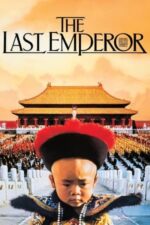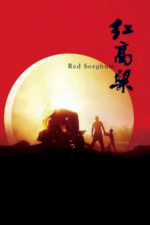Shadows of Empire: Cinema’s Exploration of Japan's Occupation of China
It’s a period often overlooked in Western cinema, but for those familiar with East Asian film history, the Japanese occupation of China during World War II is fertile ground for powerful storytelling. It’s not just about battles and political maneuvering; it’s about resilience, betrayal, identity, and the quiet heroism that blooms even under the most oppressive circumstances. I've been revisiting some key films from this era lately, and it struck me how diverse – and consistently moving – these narratives are.
What makes exploring this historical period so compelling on film? It’s more than just recounting events; it's about examining the human cost of war, the complexities of collaboration versus resistance, and the enduring spirit of a people fighting for their homeland. You see that immediately in films like Not Scared to Die. Jackie Chan’s presence might seem unusual at first glance, but his character embodies this quiet strength – the everyday person finding ways to contribute to the larger struggle. It's a reminder that resistance wasn't always about grand gestures; sometimes it was about simply enduring and offering support where you could.
Then there's Hidden Blade, which plunges us into the world of covert operations, highlighting the desperate measures taken by those fighting for their country’s survival. Think of it as a cinematic precursor to shows like "Homeland," but steeped in a very specific historical context – the precariousness of alliances and the constant threat of betrayal. It's gripping stuff!
Beyond the action and espionage, films like The Inn of the Sixth Happiness offer a different perspective. Based on a true story, it follows Gladys Aylward’s journey to China and her extraordinary efforts to protect children during the invasion. While perhaps leaning into a more sentimental tone than some other examples, it underscores the profound impact individuals – even those from seemingly distant lands – can have in times of crisis. It's a testament to human compassion that transcends cultural boundaries; something we could all use a little more of these days.
And let’s not forget Empire of the Sun, Spielberg’s visually stunning and emotionally resonant portrayal of a young boy’s experience in a Japanese prison camp. The film beautifully captures the disorientation and loss of innocence, while also showcasing the unexpected bonds that can form amidst unimaginable hardship. It's a powerful reminder of how even children are shaped by history.
Finally, Red Sorghum, from acclaimed director Zhang Yimou, offers a unique lens through which to view this period – focusing on a rural community and their fight to reclaim their land and traditions. The film’s vibrant imagery and exploration of matriarchal themes add another layer of complexity to the narrative.
These films aren't always easy viewing; they confront difficult truths about war, occupation, and human nature. But they are essential for understanding this pivotal moment in history – and for appreciating the enduring power of cinema to illuminate even the darkest chapters of our past. They offer a window into a world that deserves to be remembered, not just as a historical event, but as a testament to the resilience of the human spirit.
What do you think? Have you seen any of these films or others exploring this theme? I'd love to hear your thoughts!





































